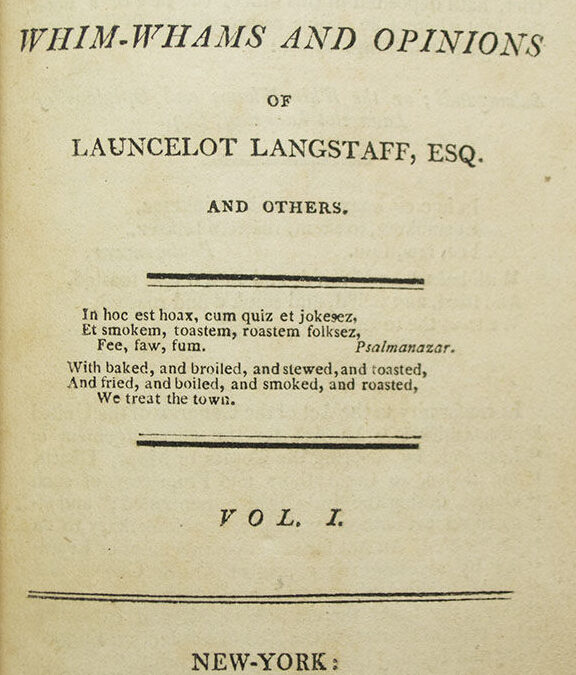 Being Anglophile and aware of London happenings, Irving probably picked up the aftermath of the Pic Nic Society scandal during his tour of Europe 1804-1806. The word stuck, but it’s used only once as an adjective to mean something silly. Under the heading “Fashions by...
Being Anglophile and aware of London happenings, Irving probably picked up the aftermath of the Pic Nic Society scandal during his tour of Europe 1804-1806. The word stuck, but it’s used only once as an adjective to mean something silly. Under the heading “Fashions by...
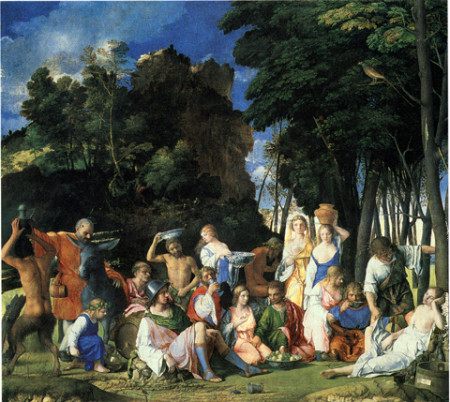 When Alfonso d’Este, the Duke of Ferrara, and his wife Lucrezia Borgia, asked for a painting expressing worldly delights, drinking, and sensuality, Giovanni Bellini could not refuse the offer though he was eighty-five and in failing health. The Feast of the Gods...
When Alfonso d’Este, the Duke of Ferrara, and his wife Lucrezia Borgia, asked for a painting expressing worldly delights, drinking, and sensuality, Giovanni Bellini could not refuse the offer though he was eighty-five and in failing health. The Feast of the Gods...
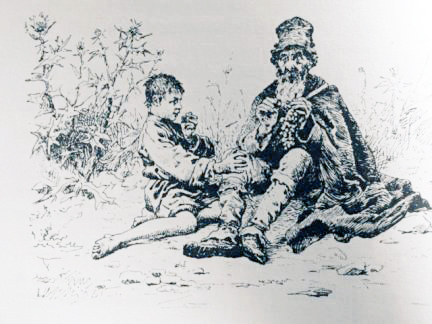 Merienda first appears in the anonymous picaresque novel The Life of Lazarillo de Tormes in 1554, * ninety-five years before the French word pique-nique in 1649. It is used to denote a snack. But when Francesco de Quevedo uses merienda in El Buscon (The Swindler), it...
Merienda first appears in the anonymous picaresque novel The Life of Lazarillo de Tormes in 1554, * ninety-five years before the French word pique-nique in 1649. It is used to denote a snack. But when Francesco de Quevedo uses merienda in El Buscon (The Swindler), it...
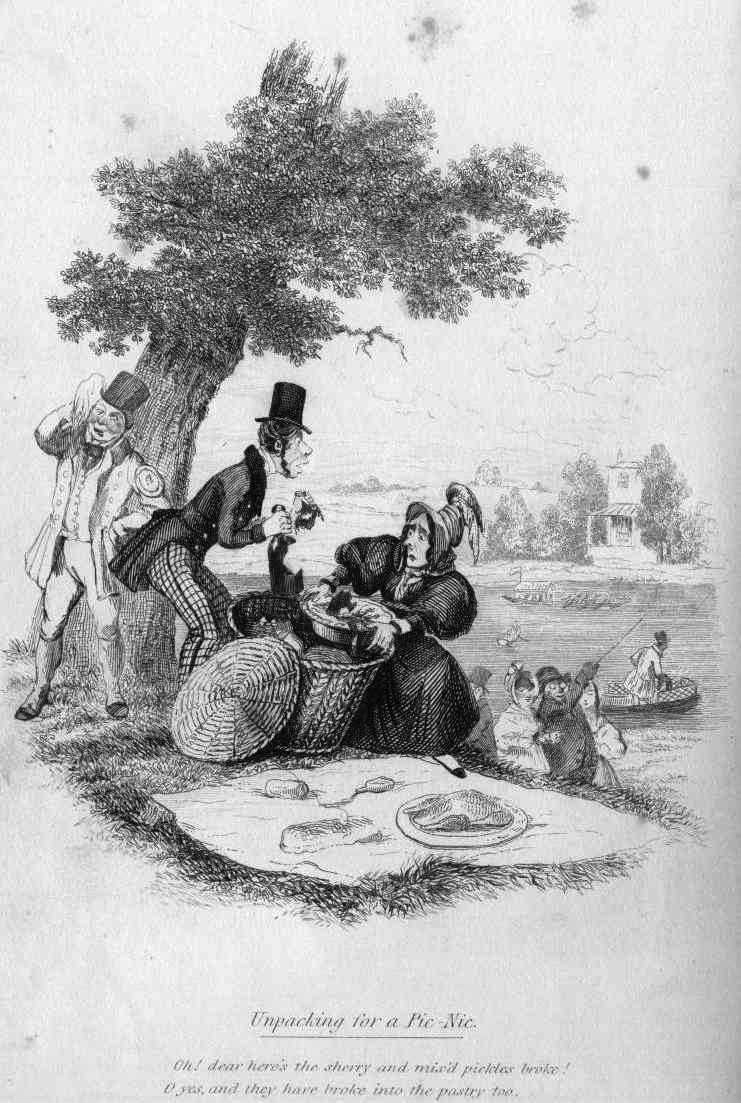 Seymour’s picnics sketches show a keen awareness of their potential for humor and satire. Especially if they’ve gone wrong. Unpacking for a Pic-Nic, for example, pokes fun at what breaks in a basket, as the legend makes amply clear, “Oh! Dear,...
Seymour’s picnics sketches show a keen awareness of their potential for humor and satire. Especially if they’ve gone wrong. Unpacking for a Pic-Nic, for example, pokes fun at what breaks in a basket, as the legend makes amply clear, “Oh! Dear,...
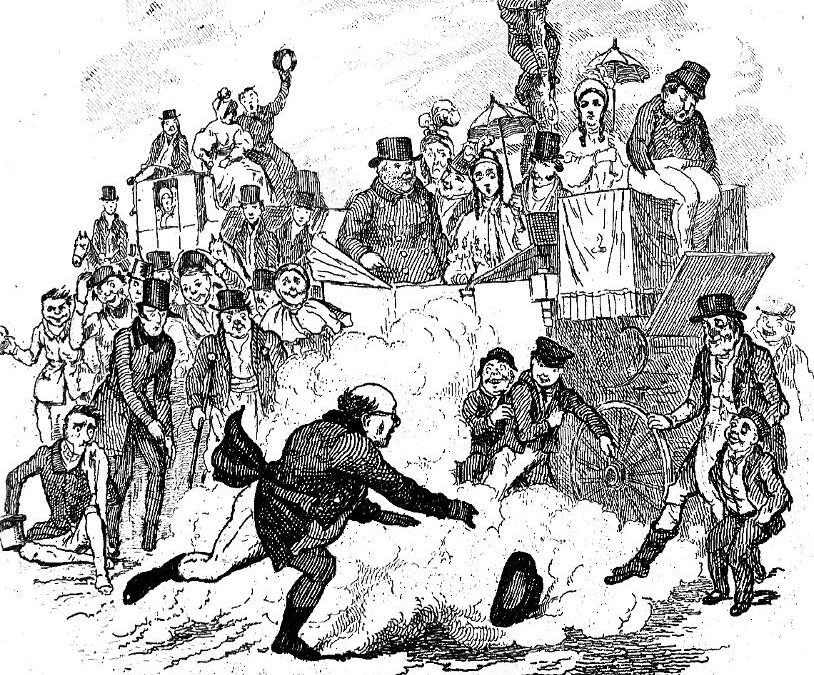 Dickens does not use the word picnic. But when the Wardles have lunch in their barouche, it’s an unmistakably a picnic: “In an open barouche, the horses of which had been taken out, the better to accommodate it to the crowded place, stood a stout old...
Dickens does not use the word picnic. But when the Wardles have lunch in their barouche, it’s an unmistakably a picnic: “In an open barouche, the horses of which had been taken out, the better to accommodate it to the crowded place, stood a stout old...
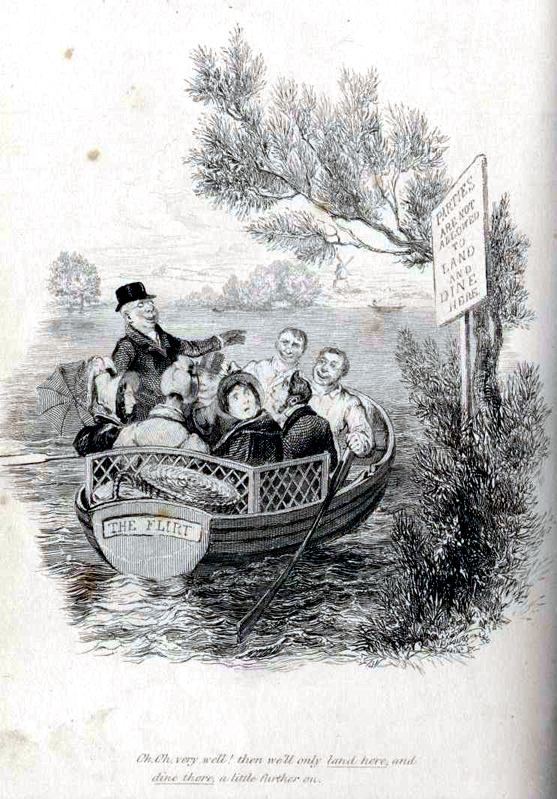 Seymour’s picnics are comic as in Unpacking for a Pic-Nic and “—A merry holiday party, forming a tolerable boat-load, and well provided with baskets of provisions, were rowing along the beautiful and picturesque banks that fringe the river’s side...
Seymour’s picnics are comic as in Unpacking for a Pic-Nic and “—A merry holiday party, forming a tolerable boat-load, and well provided with baskets of provisions, were rowing along the beautiful and picturesque banks that fringe the river’s side...
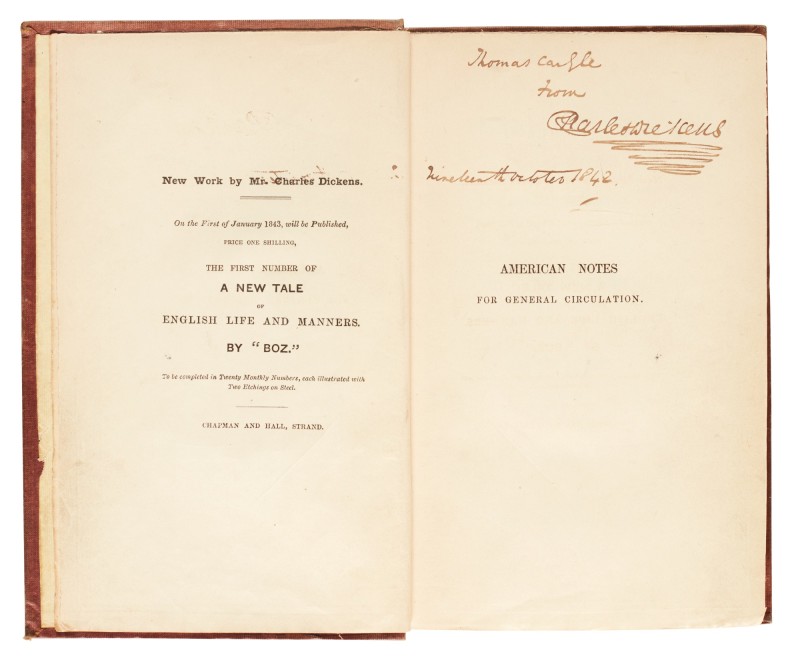 “A Jaunt to the Looking-Glass Prairie and Back” left Dickens with mixed feelings. The weather was hot and the journey tedious, but the picnic on Looking-Glass Prairie” was something Dickens wanted, mostly because he had been told that any sightseer...
“A Jaunt to the Looking-Glass Prairie and Back” left Dickens with mixed feelings. The weather was hot and the journey tedious, but the picnic on Looking-Glass Prairie” was something Dickens wanted, mostly because he had been told that any sightseer...
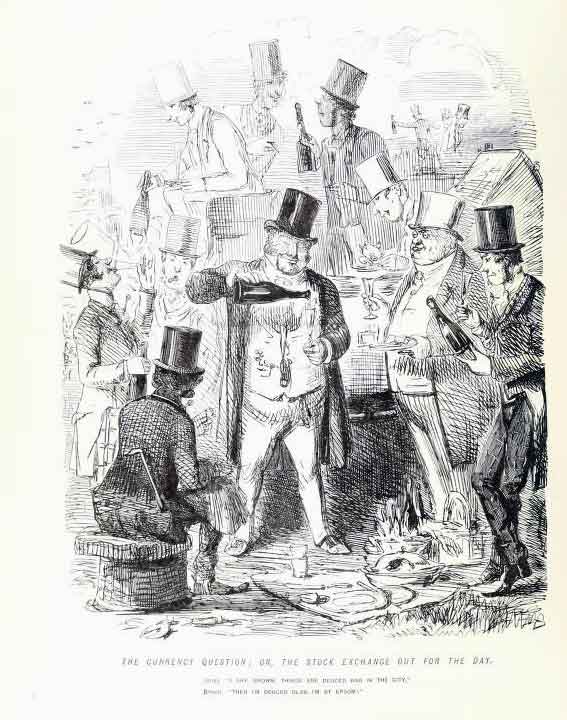 The London Stock Exchange’s reaction to a current financial panic is the butt of John Leech’s “The Currency Question, or The Exchange Out for a Day.” Leech implies picnicking in troubled times is laughable when buying and selling stocks is as...
The London Stock Exchange’s reaction to a current financial panic is the butt of John Leech’s “The Currency Question, or The Exchange Out for a Day.” Leech implies picnicking in troubled times is laughable when buying and selling stocks is as...
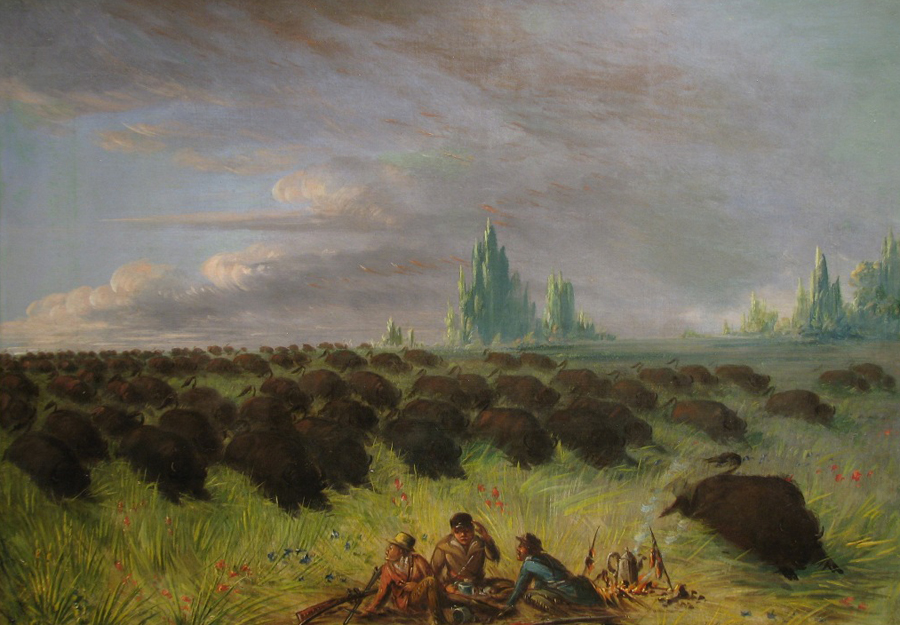 When Charles Dickens visited the Looking Glass Prairie in 1842, it reminded him of a Catlin exhibition in London. “The sun was going down, very red and bright,” Dickens writes, “and the prospect looked like that ruddy sketch of Catlin’s, which...
When Charles Dickens visited the Looking Glass Prairie in 1842, it reminded him of a Catlin exhibition in London. “The sun was going down, very red and bright,” Dickens writes, “and the prospect looked like that ruddy sketch of Catlin’s, which...
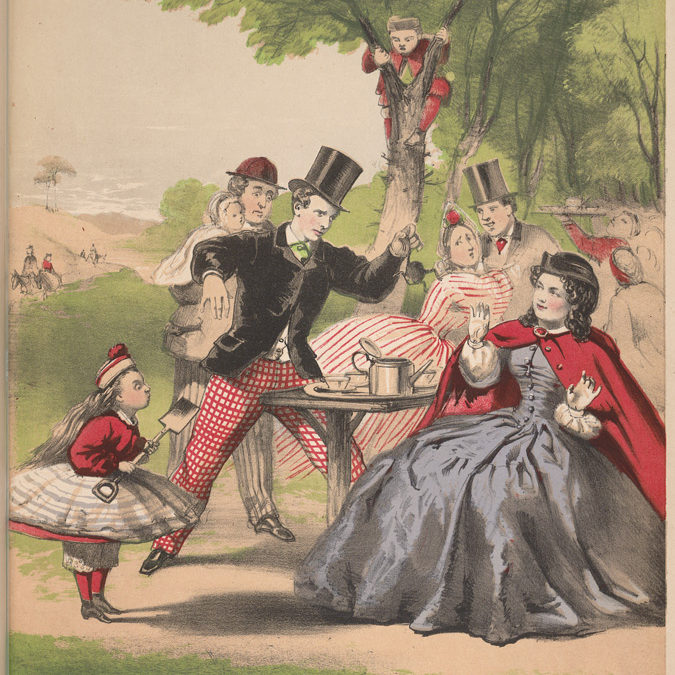 Williams’s Popular Song Hampstead Is the Place to Ruralise Hampstead Is the Place to Ruralise, All on a Summer Day (1861) is a comic hymn dedicated to the pleasures of Hampstead Heath. The euphemism “ruralizing,” like gypsying, had been in use since...
Williams’s Popular Song Hampstead Is the Place to Ruralise Hampstead Is the Place to Ruralise, All on a Summer Day (1861) is a comic hymn dedicated to the pleasures of Hampstead Heath. The euphemism “ruralizing,” like gypsying, had been in use since...











